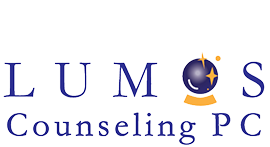
Although millions of Americans are struggling with drug addiction, only 10 percent of individuals ever receive the treatment they need. That said, treatment is available, and it can be life-changing. Both individual and group therapy for addiction provide people with the hope, skills, and resources they need to build a sustainable life in recovery. Read on to explore the key differences.
What Is Group Therapy For Addiction?
Group therapy offers a safe and supportive space for like-minded individuals to gather and discuss their struggles, fears, and successes. From the collective strength of the group, you learn that you never are alone in your battles. Likewise, you learn how to lean on people, accept feedback, and take new risks.
Group therapy for addiction tends to focus on specific topics related to relapse prevention, self-esteem, managing triggers and cravings, and implementing healthy and positive coping skills. Group addiction therapy activities can integrate all kinds of mediums including open-ended processing, writing, art, reading, and meditating.
While mental health clinicians facilitate group therapy for addiction, many people also benefit from specific support groups including:
- 12-Step Groups (Alcoholics Anonymous, Narcotics Anonymous)
- SMART Recovery
- Women for Sobriety
- SOS
- LifeRing
These peer-led groups provide support and guidance for individuals in all stages of recovery. The meetings are run on donations, and they are usually open to anyone who shows the willingness for change.
What is Individual Therapy For Addiction?
Unlike group therapy for addiction, your individual work focuses exclusively on you. Regarding your addiction, therapy helps you identify the potential barriers that can affect your recovery. Therapy also helps you navigate healthy ways to cope with stress as it arises.
You and your therapist work on your addiction, but you will also address underlying issues potentially related to trauma, co-occurring mental illness, and other life stressors.
Individual therapy provides a nonjudgmental space for exploring your innermost thoughts and feelings. For this reason, the therapy experience can be incredibly profound and powerful. You will build a special relationship with your therapist built on trust, compassion, and mutual respect.
Can You Blend Both Therapy Approaches?
Many people benefit from taking an eclectic approach in treating their addiction. Therefore, it is common for clients to attend both individual and group therapy for addiction.
This blending approach serves many useful purposes. On the one hand, group therapy for addiction allows you to share, learn, and build positive peer support with fellow members. On the other hand, you also have your individual therapist to explore sensitive issues that you may not feel comfortable expressing in a group setting. Both therapies can provide you with the valuable opportunity of learning more about yourself. They can also encourage you to push through your comfort zone and make positive changes in your life.
Seeking New Jersey Addiction Help
Asking for help can be challenging, but it is often the step you need to take to get your life back on track. Lumos Counseling offers both individual and group therapy for addiction. Look no further for the best NJ addiction help. Click to schedule a free consultation today.

